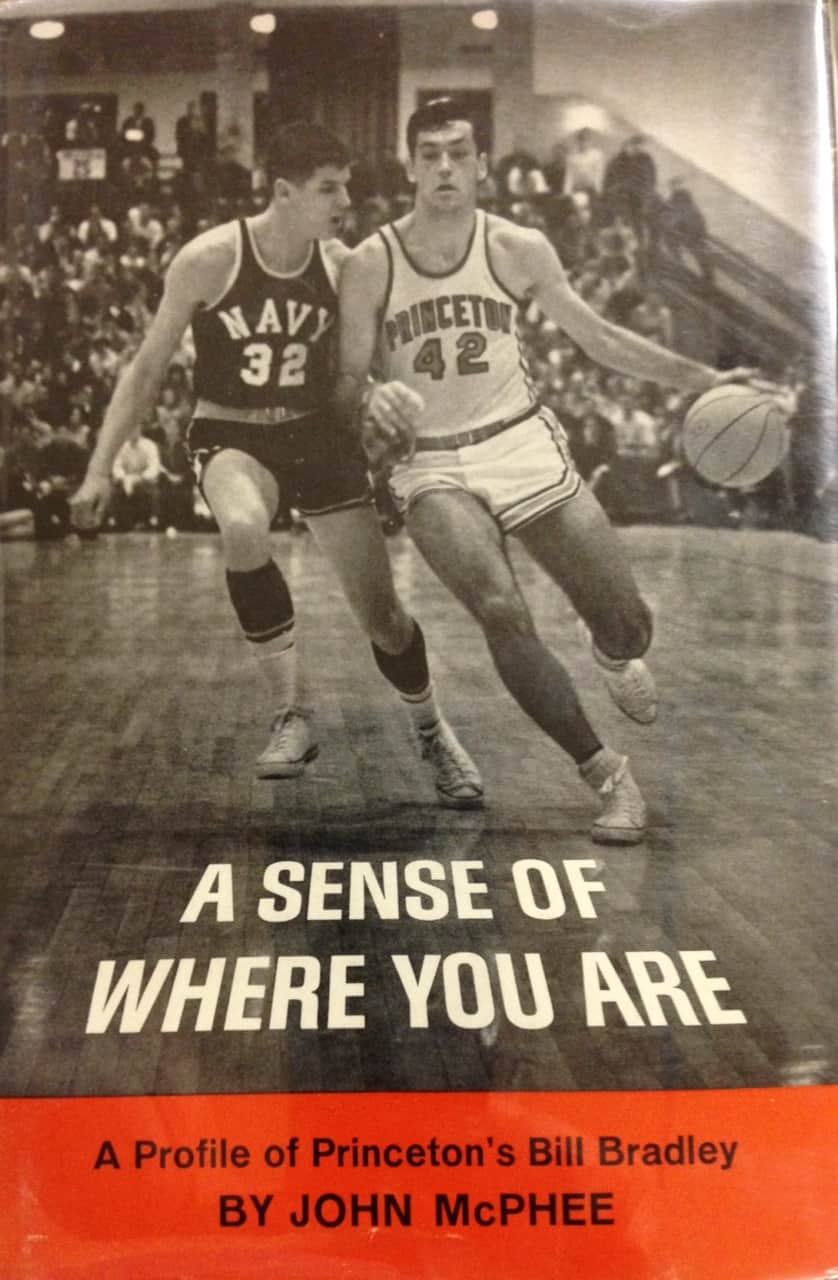It’s been fifty years since John McPhee has published, against the better judgment of a New Yorker editor, his seminal article A Sense of Where You Are, profiling then-undergraduate Bill Bradley, now considered one of the best basketball players in the history of the United States of America. Notably, it retains its appeal and importance even today.
A Sense of Where You Are – both the article and the book – is important for many different reasons: as one of the best accounts of inner workings of NCAA and basketball history, and as a striking illustration of heights a man can achieve simply by establishing a clearly defined goal and calmly, confidently following through with his plans.
A Look Behind
It is especially impressive because now, fifty years later, when we perceive some aspects of the book in retrospect, we have a better possibility to evaluate some things said by John McPhee than he himself and his readers had when the book was first published. Yes, A Sense of Where You Are kickstarted the careers of both John McPhee and Bill Bradley – in writing and basketball, respectively – but today we can correlate the image of Bradley in 1965 with the way his life developed. And it is a fascinating possibility.
The image drawn by John McPhee is fascinating, first and foremost, because from the very beginning it gives off an impression of a man who knew what he wanted and wasn’t going to let the world around him decide what his life is going to be like.
Always Knowing What You Want
Born to an affluent banker’s family, Bill Bradley already was an unlikely candidate for a star basketball player. Basketball, however, was among his most prominent abilities – yet he turned down a scholarship from the Duke University and instead enrolled at Princeton, a university that didn’t allow its members athletic scholarships. The reason was simple – Princeton produced the highest number of Rhodes scholars in the United States, and a Rhodes scholarship was his best opportunity to get into Oxford, which Bradley was determined to do.
This confused the New York Knickerbockers to no end, because the team already considered Bradley to be one of their players – but he had other plans and already understood that life extends beyond a few years of basketball career.
He would later return to professional basketball and play for the Knickerbockers after all – but always on his own terms, extending the calm and wise atmosphere all around, becoming a natural leader figure to follow.
Self-Discipline above All
According to those who knew him closely during his basketball years, Bradley wasn’t a very ‘physical’ player – he wasn’t the tallest or strongest, there were other players who were capable of running faster, jumping higher and throwing with a greater force than he did. The difference that almost in inevitably let him prevail was in his tremendous self-discipline, which showed itself in other spheres of his life as well. For example, determined to improve his mediocre grades in order to graduate magna cum laude, Bradley retreated to an off-campus house and wrote his senior 33,000-word thesis within a month.
It wouldn’t be an exaggeration to say that this very quality led to his further successes: as a political figure and a three-term senator, author of books and a corporate director.
In today’s world, when compromise seems to have become an ideal to be preached and followed by so many people, A Sense of Where You Are draws a very definite picture of that half-forgotten archetype – an archetype of an ideal American man. Devoid of flashiness, not feeling entitled to anything, not moping about his difficulties but simply doing his thing in the best possible way – setting a goal and doing everything to achieve it.
I think that we all can learn a lot from it; but in our age of eroded gender identities men are the ones to especially benefit from this book. If you need reliable book review / report writing assistance www.domyessay.net online.

